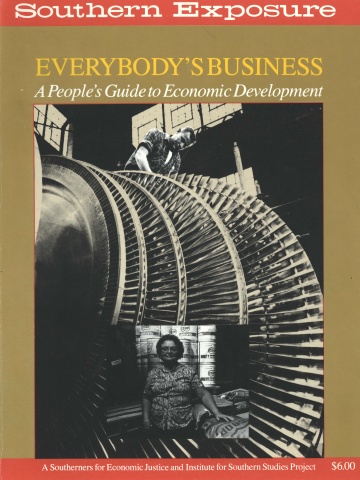Relevant Education

This article originally appeared in Southern Exposure Vol. 14 No. 5/6, "Everybody's Business." Find more from that issue here.
Education has become one of the biggest buzzwords in discussions about economic development. Blue-ribbon commissions, policymakers, and private groups ranging from the U.S. Chamber of Commerce to the National Education Association have proclaimed the intimate link between better jobs and better schools. Everyone agrees the South's education systems need drastic reform, and changes are taking place in some states. But the base for genuine reform is much narrower than the volume of rhetoric about quality education would suggest.
In the past few years, state legislators have authorized hundreds of millions of dollars for new programs, but too often their main concern has been making their states appear more attractive for business. Once the fanfare about a bold new education plan in Mississippi or South Carolina or Kentucky has died down, and the issue becomes where to find the money to pay the bill, educational standards are again compromised. All across the region, the financial commitment for major reforms is slipping.
Even beyond the issue of money, questions must be asked about the focus of these reforms: Who are the new programs designed for, and what is their purpose? Should scarce dollars go for extra math and science classes or for programs to reach high-school dropouts? Is the purpose merely to "upgrade our labor force," or should adult students and children also be taught about worker rights and citizen participation? Will quality education be available in rural and poor communities, or only to select portions of the population? Are reforms increasing or decreasing the gap in a two-tier educational system that reinforces our society's polarization by race, sex, and class?
As in the broader struggle for economic democracy, while many advocates continue to press for systemic policy changes, others are creating the examples of what government and private agencies can do now. The following profiles present two alternative approaches to adult education. Both are very small programs, but they illuminate the potential of focusing on the basic issue behind education: empowerment.
Tags
Southern Exposure
Southern Exposure is a journal that was produced by the Institute for Southern Studies, publisher of Facing South, from 1973 until 2011. It covered a broad range of political and cultural issues in the region, with a special emphasis on investigative journalism and oral history.
